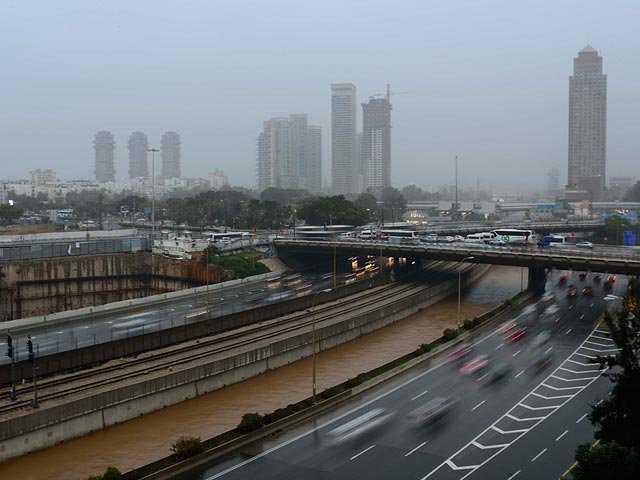The cabinet has approved the introduction of a congestion charge for the Tel Aviv metropolitan region, as part of the 2021-2022 budget that was approved last night. However, the charge will not begin operating until 2024.
The congestion charge, which is officially called the 'public transport fee,' will raise NIS 2.7 billion, according to Ministry of Finance forecasts, and will be used to helped fund the five-year plan for public transport development.
The charge will be introduced despite the opposition of Minister of Transport Meirav Michaeli, who sees it as a regressive tax, which will hurt the less well off. In the end, senior Ministry of Finance budget division officials prevailed in their determination to include the congestion charge in the Economic Arrangements Bill. The officials prevailed even though Minister of Finance Avigdor Liberman himself said he was not prepared to fight for the charge.
It will take at least 30 months before the infrastructure will be in place to implement the charge. The Tel Aviv congestion charge will have to survive a Knesset vote and the long time until it comes into effect.
In its justification of the congestion charge, the Ministry of Finance said, "Due to the worsening transport crisis and in particular in Gush Dan and in order to reduce traffic congestion, from 2024 a charge will be introduced for entering Gush Dan during rush hours. The plan will set for those choosing to travel in a private car in rush hours and areas of congestion, a more appropriate price that takes into account the external costs including loss of time, air pollution, and accidents."
Those reading this statement might conclude that the aim of the charge is to combat traffic jams but it is also being introduced to help finance the Tel Aviv Metropolitan area Metro underground railway system, which will cost NIS 150 billion, and is also included in the Economic Arrangements Bill, and needs budgetary solutions.
The congestion charge will take 30 months to be introduced because a network of cameras and payment system for the project must be developed. The infrastructure is expected to be similar to the toll system for Road 6 - the Cross Israel Highway. The bill says that the greater Tel Aviv area will be divided into three zones - the most expensive inner zone, a less expensive middle zone and a cheaper outer zone.
One of the draft bills on the congestion charge said that the daily charge for entering all three zones in the morning rush hour and returning in the evening rush hour would not be more expensive than NIS 37.50 per day. Taxis and trucks will not be charged but motor bikes will.
Related News

